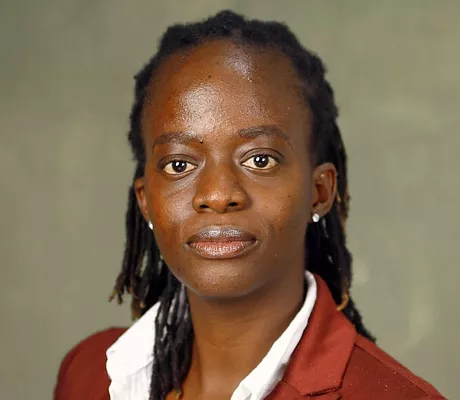Share This Article
The First Lady is an informal, but accepted title, held by the wives of the president and governors of Nigeria.
When President Muhammadu Buhari was first elected into office in 2015, one of the major changes he brought was around the issue of the First Lady of the nation. His change was that his wife Aisha Buhari was not to be addressed by the customary First Lady title. Rather, he insisted that she and all governors’ wives were to simply go by the title: “Wife of the President” and “Wife of the governor”.
While some Nigerians praised this move as a step in the right direction especially given that the office of the First Lady was never constitutional and could be a way to misappropriate public funds for somewhat dubious purposes, some others who were feminist-leaning criticised the subtle misogyny inherent in the new rebranding of the office of the First Lady.
Although there was no office of the First Lady recognized in the Buhari administration, the wives of government officials were still expected to carry out the duties expected of a First Lady. This time, however, there was to be no remuneration and official recognition even as they couldn’t engage civilian jobs.
No other example of the sexism behind that lack of recognition was as glaring when President Muhammadu Buhari said in a now-infamous interview: “My wife belongs in the kitchen, the living room and the other room”. This was said in response to him being asked about Aisha Buhari’s criticisms of his administration in a BBC Hausa interview.
It, therefore, became obvious then that like the expectation demanded of the average wife at home, being the wife of any government official meant that the gendered duties of catering to a people were to be done and were to be done freely.
Since some Nigerian First Ladies indeed do not use their close association to power to effect change, especially for women and girls, it has to be said that there are a few wives of government officials who are determined to break the mould. One of such is Bisi Adeleye Fayemi, the wife of the Ekiti State governor.
An openly feminist writer and academic, Bisi Fayemi advocated for Ekiti State to have a comprehensive sexual offender’s register. This occurred before Nigeria signed a national sex offender’s registry in 2019.
Mrs Fayemi has also lent her voice to women’s rights and in a rare move, spoke up about her own experience being sexually harassed in university. She did this in the heat of allegations of rape brought forward by Busola Dakolo against Pastor Biodun Fatoyinbo of COZA.
Through the African Women’s Development Fund, she has also granted mostly low-income women funds to start businesses.
On matters of sexual violence, the Edo First Lady Mrs Betsy Obaseki has also been a major champion against gender-based violence and the sex trafficking that tends to be rampant in Edo State. The Lagos state First Lady Mrs Ibijoke Sanwo-Olu also speaks on gender-based violence as well and comparatively, Lagos state has a longer and more robust history of addressing sexual crimes at the state level.
For one, there is the Domestic Violence and Sexual Response Team(DVSRT). The aforementioned have often collaborated with anti-rape groups like Stand To End Rape to raise awareness against the endemic nature of sexual violence.
Despite the achievements of the aforementioned women, their efforts tend to be erased due to how the office of the First Lady is not given its due recognition. Aisha Buhari, the wife of the current president has pushed to make the work and office more legitimate especially constitutionally.
The problem with the delegitimisation of the first lady role whether at the executive or state level is that it passes on the message that women are to labour freely, especially when married. In addition to that, it makes it impossible for the few women who put their lives in harm’s way to improve the lives of women to receive their credit.
Instead, it is often men who ironically may be sexist that get the praise and credit.
If wives of governors and the wife of the president are expected to use whatever power they can access to serve and speak up even by the general Nigerian public, then there must be an office of the First Lady that is constitutionally recognized.
It is not rational that several Nigerians still flinch at the idea of electing a woman into a governorship or presidential role, but expect and demand that the women married to these men should perform the duties that are ideally expected of those they support being in power.
To solve this, there should be more push for the legitimisation of the First Lady role. Far more important, however, is giving credit to the work First Ladies have done and supporting women who express the desire to run for the office that would enable them create change better.



2 Comments
Bunmi
Beautifully written! I agree with the thoughts expressed in this piece. Removing the position of a First Lady, while expecting a Governor or President’s wife to perform the duties attached to that role, is another misogynistic way of taking power away from women, burdening them with work that gives no merit and keeping them “in their place”.
Bunmi
Beautifully written! I agree with the thoughts shared. Removing the position of First Lady, while expecting the wives of Governors and Presidents to continue to perform the roles attached, is just another misogynistic way of taking power from women, burdening them with work that has no merit and putting them “in their place”.